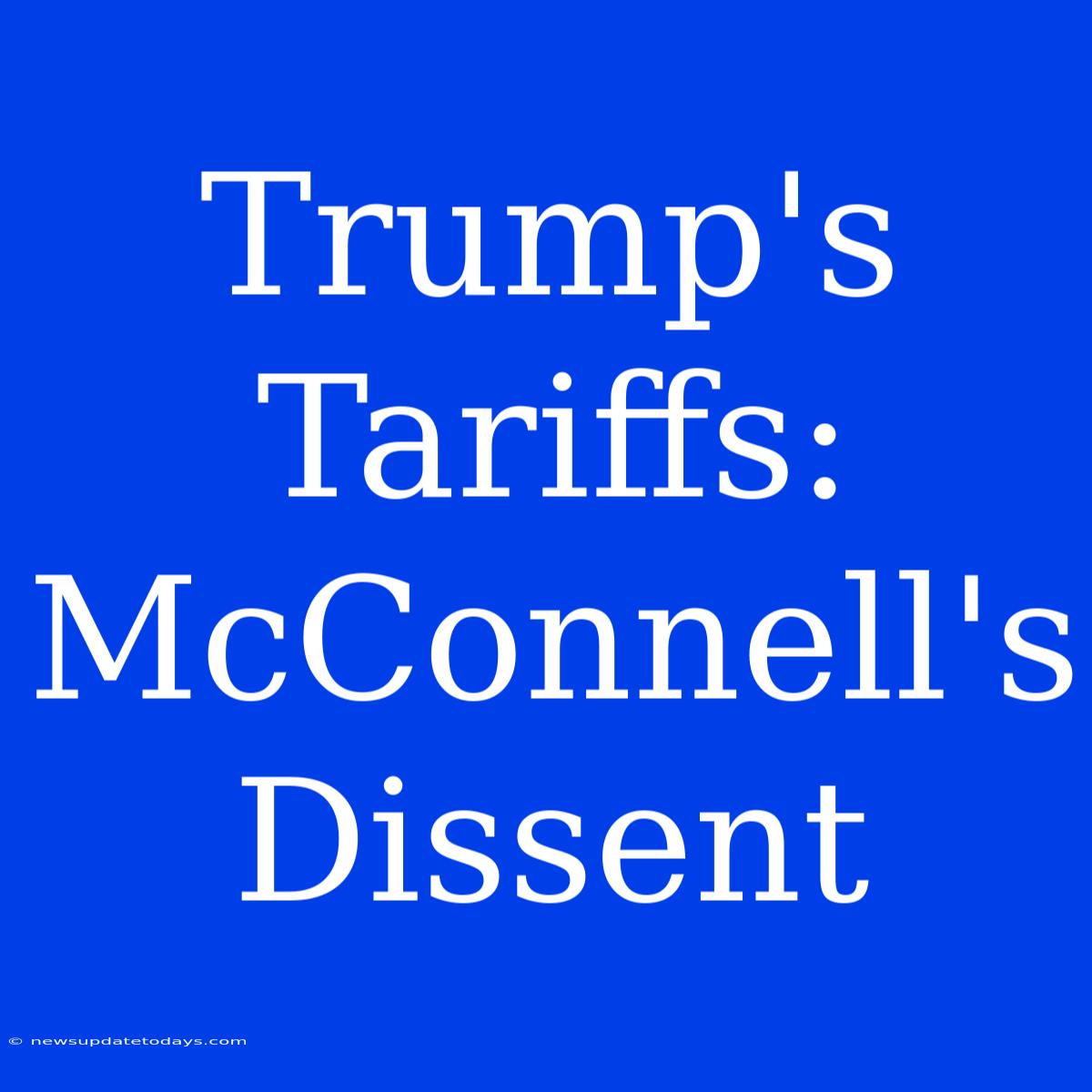Trump's Tariffs: McConnell's Quiet Dissent and the GOP Divide
Donald Trump's imposition of tariffs during his presidency sparked significant debate within the Republican party, with Senate Majority Leader Mitch McConnell voicing concerns, albeit often subtly. This article delves into McConnell's dissent, exploring the underlying reasons for his reservations and the broader impact on the GOP's economic policy.
The Tariff Strategy: A Divisive Issue
Trump's tariffs, primarily targeting China, were presented as a tool to protect American industries and jobs. He argued they would level the playing field and force fairer trade practices. However, the economic consequences were far-reaching and complex, impacting various sectors and businesses. This strategy proved deeply divisive within the Republican party.
McConnell's Cautious Approach: A Balancing Act
While publicly supporting the President, McConnell consistently expressed concerns about the potential negative impacts of the tariffs. Unlike Trump's outspoken approach, McConnell's dissent was often more nuanced and strategically deployed. He understood the political sensitivities involved in openly contradicting the President, particularly given the strong base of support Trump held within the party. His approach highlights the difficult balancing act faced by party leaders navigating internal disagreements under a strong, populist leader.
The Economic Realities: Weighing Costs and Benefits
McConnell, and many other Republicans, worried that the tariffs could lead to higher prices for consumers, stifle economic growth, and retaliatory measures from other countries. The economic arguments against the tariffs were significant, pointing to potential harm to American businesses and the overall economy. While Trump emphasized the benefits of protecting domestic industries, the potential drawbacks were undeniable. This clash of economic philosophies further exacerbated the divisions within the party.
The Political Fallout: Fractures Within the GOP
The disagreements over tariffs exposed deeper rifts within the Republican party. While some embraced Trump's protectionist stance, others, aligning more closely with McConnell's viewpoints, stressed the importance of free trade and global economic integration. This internal struggle significantly influenced the party's agenda and shaped the public perception of Republican economic policies. The enduring legacy of the tariff debate is a continued tension between protectionist and free-trade wings within the GOP.
Long-Term Implications: Shaping Future Economic Policy
The Trump-McConnell tariff clash left a lasting mark on the Republican party's approach to trade and economic policy. The debate highlighted the internal tensions between different factions and the difficulties in forging a unified economic strategy. Understanding this historical episode is crucial to analyzing the party's current and future policy positions. The ongoing discussion surrounding trade policy continues to reflect the lingering effects of Trump's tariff strategy and the internal debate it sparked.
Keywords: Trump Tariffs, Mitch McConnell, Republican Party, Trade Policy, Protectionism, Free Trade, Economic Policy, GOP Divide, Donald Trump, Economic Consequences, Political Fallout
This article provides a nuanced overview of the complex issue of Trump's tariffs and McConnell's subtle dissent, emphasizing the underlying political and economic factors driving the internal conflict within the Republican party. It is designed to be SEO-friendly by incorporating relevant keywords throughout the text and structuring the information in a clear and accessible manner.

